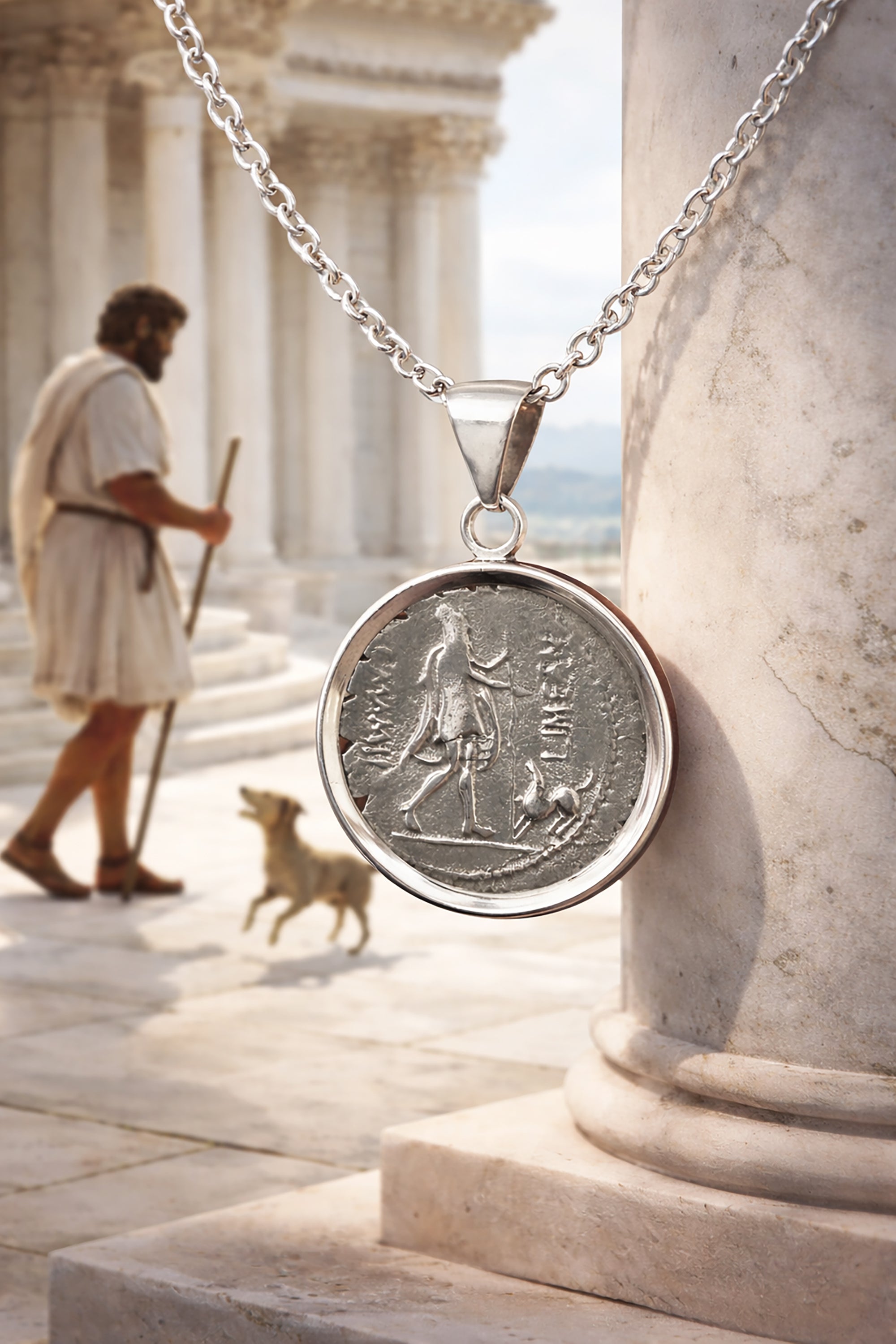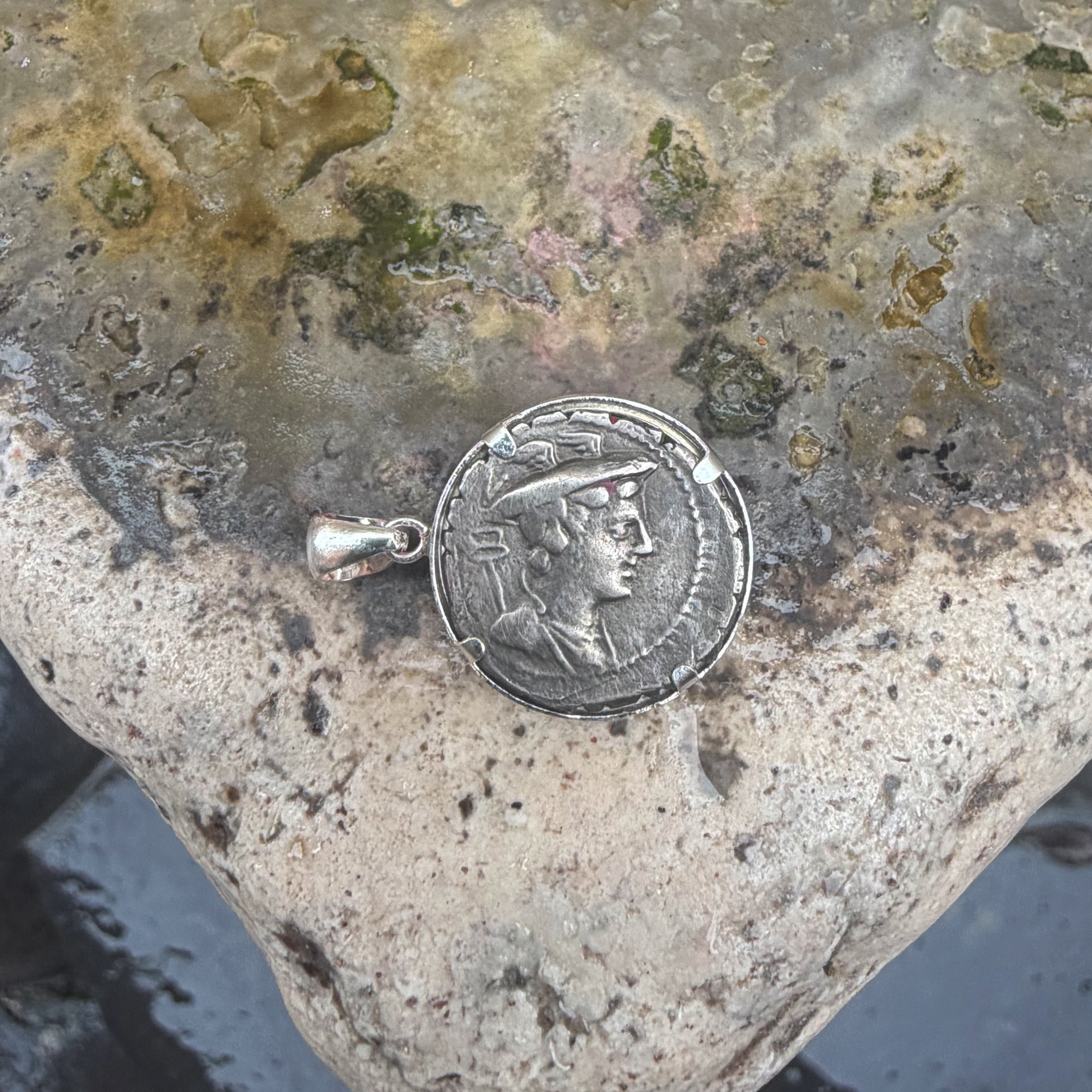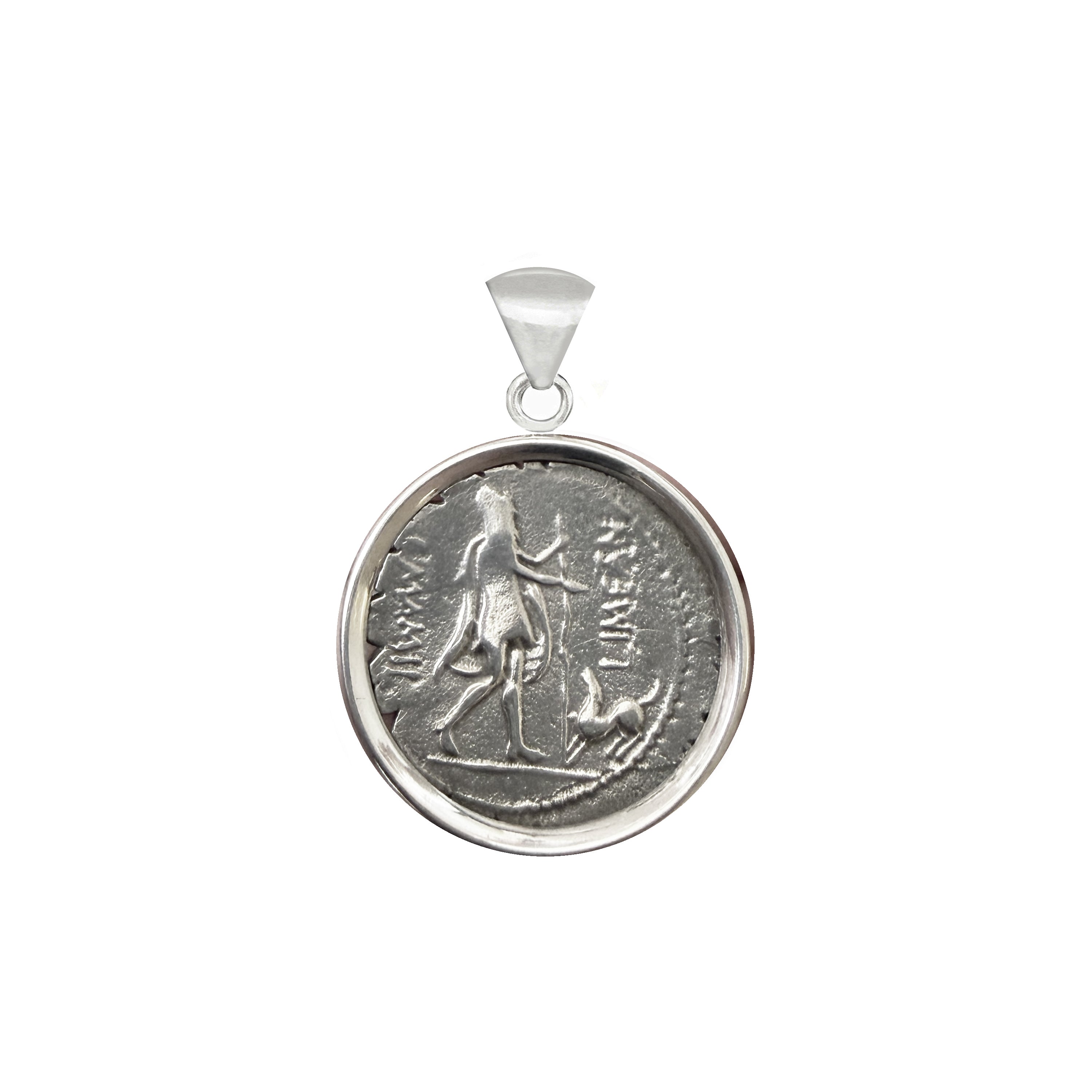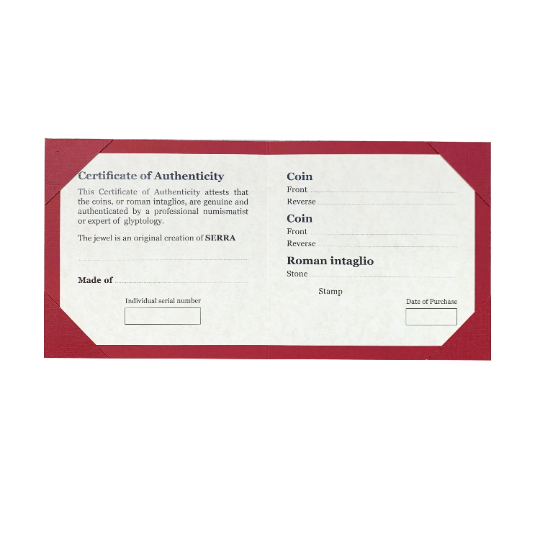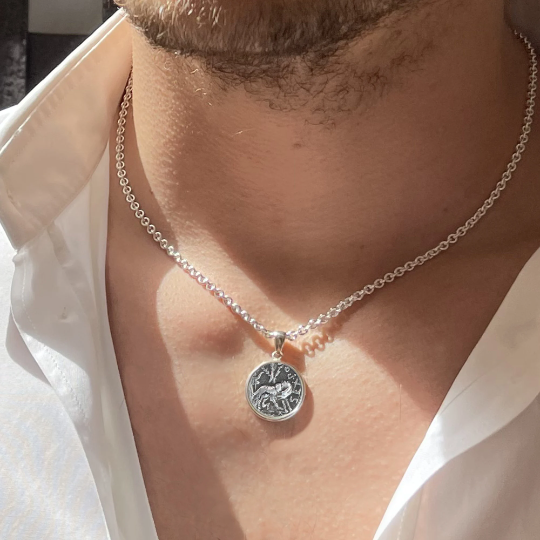ULYSSES AND HIS DOG ARGOS Genuine Ancient Roman coin 82 BC Pendant
Discover a genuine Roman coin pendant from 82 BC, set into a sterling silver pendant. This remarkable piece features a depiction of Ulysses opening his arms to his faithful dog, Argos, on the front of the coin. On the reverse side, you'll find the God Mercury.
The loyal dog holds a significant place in Greek literature and art, representing man's best friend throughout history. According to Homer's Odyssey, Ulysses returned to his homeland disguised as a beggar, and only his faithful dog, Argos, recognized him after years of waiting. Argos' unconditional love and recognition of Ulysses epitomize their deep bond.
Hermes, known as Mercury in Roman mythology, was the ancient Greek god associated with trade, luck, fertility, language, and travel. Renowned for his cleverness and mischief, Hermes served as the herald and messenger of Mount Olympus, bridging the realms of gods and humanity. His influence extended to shepherds as their patron, the invention of the lyre, and the crossing of boundaries.
With a rich history dating back to the Mycenaean civilization, Hermes was attributed with numerous inventions, including fire, the alphabet, dice, and musical instruments like the lyre.. Hermes' role as the guide for travelers was symbolized by stone pillars called hermae, often set up at boundaries to offer guidance and good fortune. Additionally, Hermes was celebrated as the patron of the home, with small marble stelai dedicated to him placed in front of doors.
Our jewelry store, Serra Roma, proudly presents an exquisite collection that beautifully honors the ancient traditions of Greek and Roman civilizations. Each piece in our collection, including authentic ancient Roman and Greek coins and intaglios, is accompanied by a certificate of authenticity, providing proof of its historical significance and origin.

